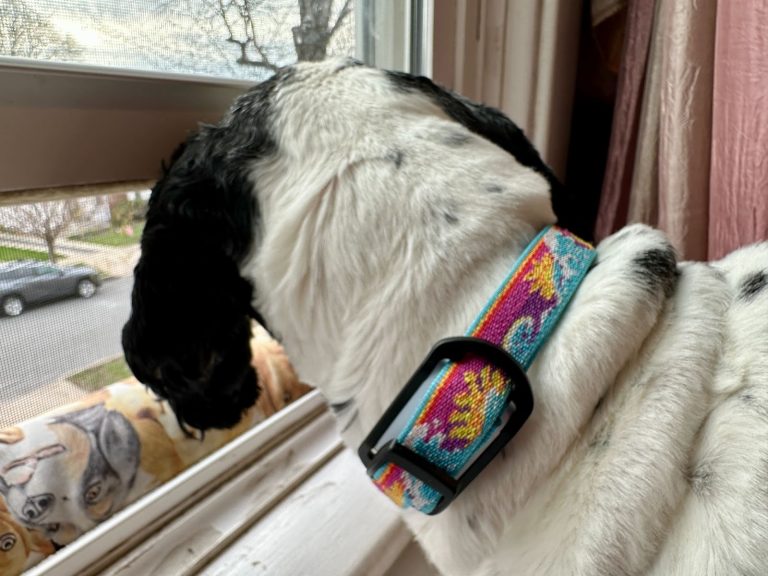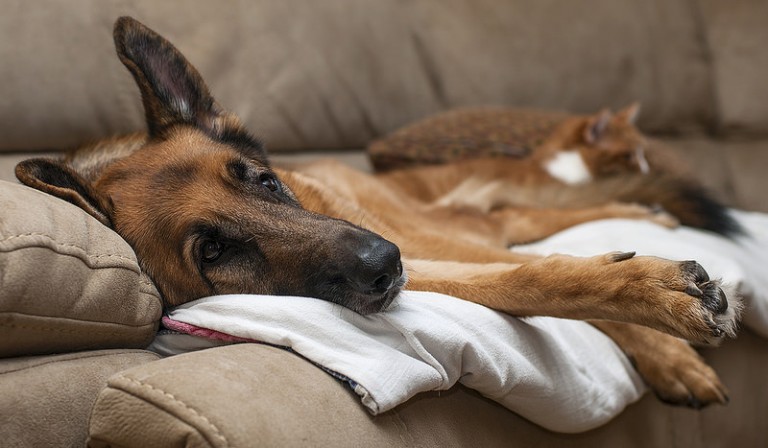6 Common Items That Can Kill Your Cat
Keep your cat safe and do your homework on these common — and potentially dangerous — household items.
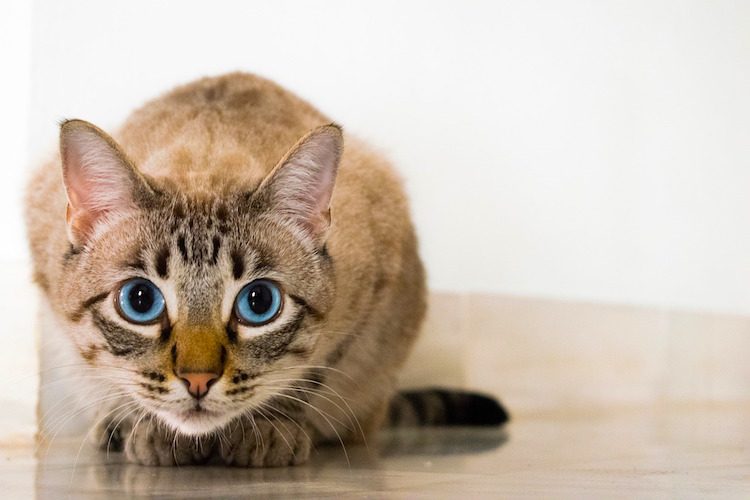
Do you have a cat? Do you know which items in your home are dangerous for them?
All of us have an array of items in our households that help us keep things running smoothly.
But if you have a cat, then you need to take some steps to ensure you aren’t forgetting their well-being — because some of these day-to-day items can be dangerous to cats.
In this article, we’ll discuss a few common items that are potentially dangerous enough to kill your cat.

Don’t leave your pet’s safety to chance
Sign up for Petful recall alerts today.

6 Common Items That Can Kill Your Cat

1. Human Medications
According to the American Society for the Prevention of Cruelty to Animals (ASPCA), the No. 1 toxin for pets in 2017 was human prescription medications:
“17.5% (34,888) of APCC cases were attributed to prescription meds…. Pain medications, antidepressants and heart medications are the most common medications APCC receives calls about.”
Cats may see a pill on the ground, think it’s a treat and eat it — leading to toxic and often fatal consequences.
Some people think it’s OK to give their cat half an aspirin if the cat is limping or in pain, but giving medications (even aspirin) can do more harm than good. The same holds true for ibuprofen (Advil) and NSAIDs. Acetaminophen (Tylenol) poisoning is common in cats, unfortunately.
If you have pets, please be careful with your medication. Never give any pet a drug that was intended for human use without consulting a veterinarian first.
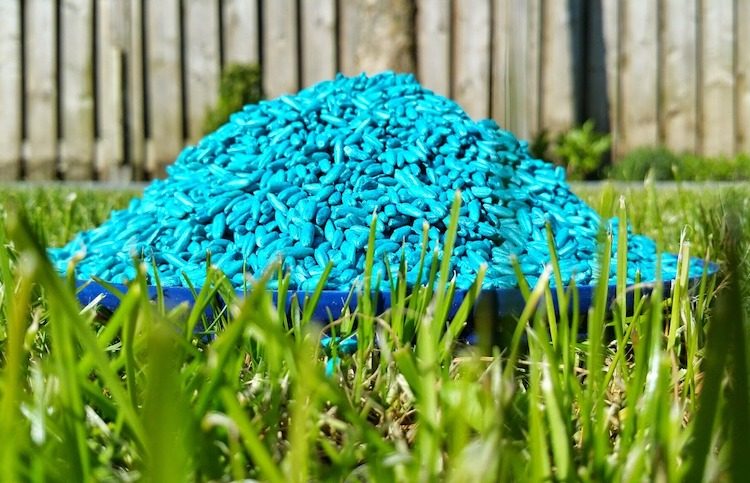
2. Rodenticides and Insecticides
Rodent and insect infestations are common, especially in rural areas.
Though it’s important to protect your home and discourage infestations, you need to be careful when it comes to chemicals and poisons.
Because they are close to the ground, cats can easily step in or eat these poisons.
If you’re using a pest control company for your infestation, explain that you have pets. Find out what options are available to prevent poisoning your pets.
If you are handling the problem yourself, be sure you understand how to apply your chosen method safely.
Also, some dog flea and tick medications are not safe around cats. So, if dogs and cats share the same home, make sure all products are cat-friendly.
Can a Cat Be Poisoned by Eating a Poisoned Mouse?
When it comes to rodent poisons, we’re sometimes asked, “Can a cat be poisoned by eating a poisoned mouse?”
In other words, let’s say your cat catches an already poisoned mouse and eats some of that mouse. Could your cat then become poisoned themselves?
According to Dr. Ed Jorden, DVM, this is technically possible — but not at all likely. Writing for the Billings Gazette, Dr. Jorden says:
“I am often asked if cats will get sick eating mice that have eaten the D-Con.… [But] the cat would have to eat 32 mice to get enough of the D-Con to affect his blood system. If you have so many mice that your cat would eat 32 of them a day, then you may want to consider moving!”
Pamela Huyck, CVT, says, “There is a lot of incorrect information about mouse and rat poisons (rodenticides) out there.” She debunks the myths in her article “Common Misconceptions About Mouse and Rat Poisons.”

3. People Food
People sometimes feed their pets the same food they themselves eat, but some human foods are toxic for cats.
In fact, food was the 3rd most-reported method of poisoning to the ASPCA in 2017, coming in at 10.9% of all reported cases.
Foods that can be toxic to cats include:
- Alcohol
- Chocolate, tea and other caffeine-laced beverages
- Grapes and raisins
- Raw garlic and onion
- Raw eggs
- Raw fish or meat
Cats can contract salmonella or E. coli from raw meats just like people, or even toxoplasmosis.
Chocolate contains theobromine — which is toxic to cats and dogs. Small quantities can cause seizures and death in cats. Dark chocolate is more toxic than milk chocolate, but both are still dangerous for cats if ingested.
Other dangerous food items can cause a wide range of illnesses, from kidney failure to heart problems.
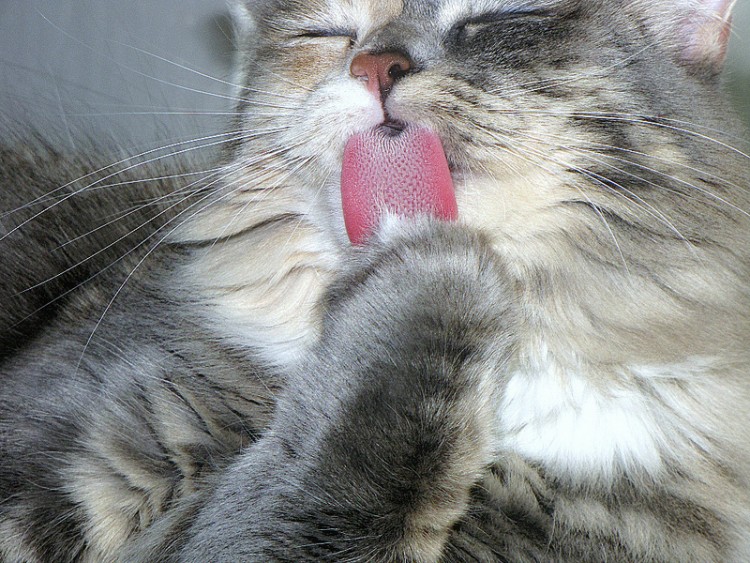
4. Household Cleaners
When you’re using any household cleaner, take a moment to read the labels.
We know it’s not a good idea to breathe in too many bleach or ammonia fumes, or to expose our skin to the cleaners. But few of us remember to take our pets into account.
For example, if you use a bleach-based cleaner for your bathtub, remember to rinse it out thoroughly before you walk away if your cat likes to get into the bathtub. Otherwise, your cat could absorb the bleach through their feet.
It’s a good idea to put your pets in another room when you’re cleaning until you’ve rinsed and ventilated the area. If you’ve treated the toilet water, keep the toilet lid closed to prevent your cat from drinking the water.
And hide those laundry detergent pods, which are dangerous items that could appear as treats or toys to your cat.

5. String-Like Items
Cats love string and ribbons, but household items like floss, rubber bands, thread and tinsel can be dangerous for cats.
If swallowed, string can cause obstructions in your cat’s intestines or stomach, requiring surgery to remove.
“Swallowed string can cause strangulation, and it can also become wrapped around the cat’s intestines,” warns pet product giant Canidae.
“The intestines can become blocked, pulled or torn by the string … [and] if the string cuts the intestines, it can cause fecal matter to contaminate the abdominal cavity, resulting in a life-threatening inflammation called peritonitis.”
Jennifer Costello, a former veterinary technician, tells us, “I once saw a cat who was vomiting and not eating. The client insisted that her cat had not gotten into anything unusual. Upon oral examination by the vet, a piece of string was wrapped around the back of the cat’s tongue and went down the throat into the stomach.”
Miniblinds should also be off-limits to cats. Cats and kittens like to play with the string that dangles so temptingly, but the cats can strangle or even hang themselves.

6. Plants
Several plants are toxic to cats, and in 2017, plant toxicity accounted for 5.4% of cases reported to the ASPCA’s poison center.
Lilies, sago palms, oleander, rhododendrons, tulips and more are toxic to cats, so bear this in mind when planting a garden or bringing plants into the house.
Lily poisoning in cats is especially common in the spring, especially around Easter. These flowers begin appearing on people’s tables as gorgeous centerpieces.
Unfortunately, these beautiful spring flowers are extremely toxic to cats and can cause kidney failure and death very quickly if ingested by a cat.
“I’ve seen it happen,” recalls Costello, the former vet tech.
“A few years ago, we had a young couple come in with their cat who was vomiting and lethargic. The cat had been munching on some lilies that were in a vase on the kitchen table for a couple of weeks, and the people had no idea that the lilies were toxic to cats,” she says.
“Unfortunately, despite extensive treatment, the cat died a month later from kidney failure,” Costello says.
Learn more from this veterinarian about common items that can kill your cat:

Cats are wonderful, loving pets, and it’s our job to keep them safe. With mindfulness and care on our part, we can keep our feline friends from getting accidentally poisoned or injured.

